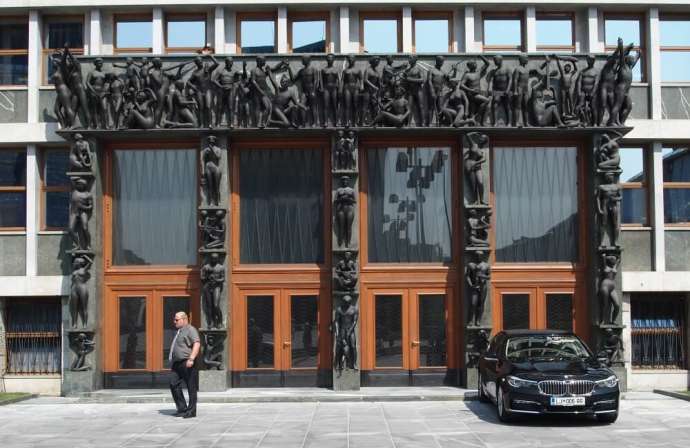STA, 4 June - The National Assembly passed in a unanimous vote on Friday amendments to the penal code that redefine sexual consent in line with the concept that only yes means yes. MPs said during the debate that the credit should go to NGOs, which mobilised the public to create a genuine social movement.
The legislative proposal drawn up by NGOs and adopted by the opposition Marjan Šarec List (LMŠ), Social Democrats (SD), Left and the Alenka Bratušek Party (SAB), had received unanimous support already at the parliamentary Justice Committee at the beginning of May, and it had no opponents today either.
Justice Ministry State Secretary Matic Zupan said that "as a society we have matured so much that we are ready to protect sexual integrity in a broader sense". The legal system will no longer wonder whether enough force was used in a case, but the use of force will be an aggravating circumstance, he said.
Žiga Turk’s Tweet on Rape Wins “Most Sexist Quote of the Year”
SD MP Bojana Muršič said the initiative for the legislative changes did not belong to any party. This is a law of many citizens, volunteers, who have been working for women's rights for years, and of NGOs.
"We want a more equal society in which we are developing a culture of consent, are learning to ask, hear and respect what is said. The legislative change will not miraculously cure our society, but it is a reflection of strong political will to change the mindset, empower victims and enable more efficient prosecution of perpetrators," she said.
Branislav Rajić from the group of unaffiliated MPs said that the changes to the penal code were sending a message to the victims that they had the support of politicians. "We encourage them to report such actions, as there is no more risk that perpetrators would go unpunished."
Dejan Kaloh from the senior coalition Democrats (SDS) said that the redefinition of violence in line with the only yes means yes model was more than required and a civilizational norm that should have been adopted long ago.
Tina Heferle (LMŠ) added that this was not a political but a social consent, while Predrag Baković (SD) warned that mere legislative changes would not suffice. "Even more resources need to be invested in support to victims, psychological support, support provided by institutions."
Matej T. Vatovec (Left) agreed that a lot of work remained ahead "if we want to remain an open and inclusive society".
Survey Suggests 20% of Slovenes Victims of Child Sex Abuse
The driving force behind the redefinition of sexual violence has in the past year been NGO Institute 8 March. Its head Nika Kovač said ahead of today's vote that the process of adopting the legislative changes had proven that there was a general human value in Slovenia, which was sexual integrity.
She stressed that parties across the political aisle had supported the motion, which clearly showed that "every victim of rape has a voice in the National Assembly". "We are convinced this would never have happened without the mass support of volunteers. Together, we have changed the society for the better."
Over 20 NGOs welcomed the passage as a "big step towards protection of sexual integrity and support to victims of sexual violence" in a joint press release.
"Today is a big day, not just for the victims of violence but for all of us who will be living in a slightly different society from now on," said Katja Zabukovec Kerin, the head of the Association for Non-violent Communication. She added that cooperation with both justice ministers, Andreja Katič and Lidija Kozlovič, and virtually all parties had been exemplary.
Nataša Posel from Amnesty International Slovenije spoke of a "historical moment", adding that relevant institutions and the society as a whole were now in for the important work of implementing the concept of consent.
Darja Zaviršek from the Faculty of Social Work said the legislative change was a "gigantic step towards formal equality between men and women" that will lead to a new understanding of human relations, encourage discussion on new topics among boys and girls, and promote new forms of intimacy between men and women.







